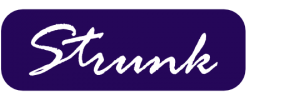Thirty Years of Overdraft Privilege
In 1993 Strunk began their Overdraft Privilege program which was designed to save consumers money and help banks become more operationally efficient. Thirty years later many banks continue to provide the service and their customers appreciate the program.
When a small business or consumer has a written a check or debit on their account that exceeds the account balance a bank can either pay the item taking the account negative or return or deny the transaction at point of sale. In either case the bank typically charges the same whether they pay it or return it…about $25-$35 based on the bank’s pricing schedule.
When a check is returned and a bank levies a fee the only thing this causes is havoc for most consumers. The check was written to pay a mortgage or rent, make a car payment, or to pay for groceries or prescription drugs. If the bank returns the non sufficient fund item it could cause the customer to have bad credit, get thrown out of their rental, not being able to take the food home to their family or pay for the much needed drugs from the pharmacy. These are real life situations and in each case the retailer or merchant charges a fee for that returned item…typically $35-$50 per item. Can’t think of anyone who would want a bank to return the check, can you?
If someone is using a debit card to buy something (as debit card transactions have become more prevalent in the past decade) the bank simply denies the transaction at point of sale if the purchase will overdraw their account. I doubt if anyone wants to put the groceries back on the shelf.
Overdraft Privilege is a win-win situation. Consumers get to take whatever they purchased home and the bank’s operations department doesn’t have to decide who to pay and who to return the overdraft on.
Contact Strunk at info@strunkaccess.com to learn more about how Overdraft Privilege can benefit your bank and your customers.



